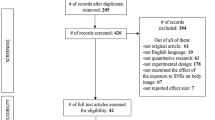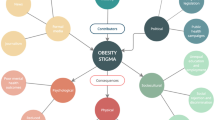Summary
This study was aimed at gaining a better understanding of the nature of negative attitudes towards genetically modified (GM) food. A sample of 250 students at the University of Tromsø responded to a questionnaire measuring attitudes towards GM food, attitude strength, intention to buy such food, and their personal values. Values and attitude strength proved to be important constructs when explaining the attitudes. A structural model was estimated, confirming that the negative attitudes towards GM food were embedded in universalism and hedonism values, and also predicted behavioural intention to buy such food. Attitude centrality was found to moderate the value-attitude relationship. Central attitudes mediated the relation between values and behavioural intention, while for the less central attitudes there was no relation between values and attitudes. Rather, both were independent predictors of intention. The study showed that some individuals hold weak attitudes and therefore may be more likely to change their attitude than those whose attitude is embedded in values.
Similar content being viewed by others
References
R. Alvesleben (2001) Beliefs associated with food production methods. L. Frewer E. Risvik H. Schifferstein (Eds) Food, people and society Springer Berlin 381–399
J. C. Anderson D. W. Gerbing (1988) ArticleTitleStructural equation modelling in practice: A review and recommended two-step approach Psychological Bulletin 103 411–423
R. M. Baron D. A. Kenny (1986) ArticleTitleThe moderator-mediator variable distinction in social psychological research: Conceptual, strategic, and statistical considerations Journal of Personality and Social Psychology 51 1173–1182
K. A. Bollen (1989) Structural equations with latent variables Wiley New York
L. Bredahl (1999) ArticleTitleConsumers’ cognitions with regard to genetically modified foods: Results of a qualitative study in four countries Appetite 33 343–360
L. Bredahl (2001) ArticleTitleDeterminants of consumer attitudes and purchase intentions with regard to genetically modified foods – Results of a cross-national survey Journal of Consumer Policy 24 23–61
G. C. Bruner P. J. Hensel (1998) Marketing scales handbook. American Marketing Association Chicago, IL
R. Budd C. Spencer (1984) ArticleTitleLatitude of rejection, centrality and certainty: Variables affecting the relationship between attitudes, norms and behavioural intentions British Journal of Social Psychology 23 1–8
S. M. Burgess (1992) ArticleTitlePersonal values in consumer research: A historical perspective Research in Marketing 11 35–79
A. J. Cook G. N. Kerr K. Moore (2002) ArticleTitleAttitudes and intentions towards purchasing GM food Journal of Economic Psychology 23 557–572
A. H. Eagly S. Chaiken (1993) The psychology of attitudes. Harcourt College Publishers Fort Worth, TX
European Commission (2000) The Europeans and biotechnology European Commission. Eurobarometer 52.1 Brussels
N. T. Feather (1990) Bridging the gap between values and actions. E. T. Higgins R. M. Sorrentino (Eds.) (Eds) Handbook of motivation and cognition Guilford Press New York 151–192
N. T. Feather M. A. Norman A. Worsley (1998) ArticleTitleValues and valences: Variables relating to attractiveness and choice of food in different contexts Journal of Applied Social Psychology 28 639–656
M. W. Fox (1988) ArticleTitleGenetic engineering biotechnology: Animal welfare and environmental issues Applied Animal Behaviour Science 20 83–94
L. J. Frewer C. Howard R. Shepherd (1996) ArticleTitleThe influence of realistic product exposure on attitudes towards genetic engineering of food Food Quality and Preference 7 61–67
L. J. Frewer C. Howard R. Shepherd (1997) ArticleTitlePublic concerns in the United Kingdom about general and specific applications of genetic engineering: Risk, benefit, and ethics ScienceTechnology, and Human Values 22 98–124
Frewer, L. J., Scholderer, J., Downs, C. L., & Bredahl, L. (2000). Communicating about the risks and benefits of genetically modified foods: Effects of different information strategies. Aarhus: The Aarhus School of Business. MAPP Working Paper No. 71, FAIR-PL96-1667.
K. Grunert G. Lähteenmäki L. Nielsen N. A. Poulsen J. B. Ueland Ø. Ueland A. Åström (2001) ArticleTitleConsumer perceptions of food products involving genetic modification – Results from a qualitative study in four nordic countries Food Quality and Preference 12 527–542
J. F. Hair R. E. Anderson R. L. Tatham W. C. Black (1995) Multivariate data analysis. Prentice Hall Englewood Cliffs, NJ
S. K. Harlander (1991) ArticleTitleSocial, moral, and ethical issues in food biotechnology Food Technology 45 IssueID5 152–160
T. Hoban E. Woodrum R. Czaja (1992) ArticleTitlePublic opposition to genetic engineering Rural Sociology 57 476–493
R. Holland Verplanken W. Van B. A. Knippenberg (2003) ArticleTitleFrom repetition to conviction: Attitude accessibility as a determinant of attitude certainty Journal of Experimental Social Psychology 39 594–601
P. M. Homer L. R. Kahle (1988) ArticleTitleA structural equation test of the value-attitude-behaviour hierarchy Journal of Personality and Social Psychology 54 638–646
B. T. Johnson A. H. Eagly (1989) ArticleTitleEffects of involvement on persuasion: A meta-analysis Psychological Bulletin 106 290–314
K. G. Jöreskog D. Sörbom (2001) LISREL 8.50 Scientific Software International Chicago
C. M. Judd J. A. Krosnick (1982) ArticleTitleAttitude centrality, organization, and measurement Journal of Personality and Social Psychology 42 436–447
D. Katz (1960) ArticleTitleThe functional approach to the study of attitudes Public Opinion Quarterly 24 163–204
C. A. Kiesler (1971) The psychology of commitment: Experiments linking behaviour to belief. Academic Press San Diego, CA
S. J. Kraus (1995) ArticleTitleAttitudes and the prediction of behaviour: A meta-analysis of the empirical literature Personality and Social Psychology Bulletin 21 58–75
C. M. Kristiansen A. M. Hotte (1996) Morality and the self: Implications for the when and how of value-attitude-behaviour relations. C. Seligman J. M. Olson M. P. Zanna (Eds) The psychology of values: The Ontario Symposium Lawrence Erlbaum Mahwah, NJ 77–105
J. A. Krosnick R. P. Abelson (1992) The case of measuring attitude strength in surveys J. Tanur (Eds) Questions about questions: Inquiries into the cognitive bases of surveys Russell Sage Newyork 177–203
J. A. Krosnick D. S. Boninger Y. C. Chuang M. K. Berent C. G. Garnot (1993) ArticleTitleAttitude strength: One construct or many related constructs Journal of Personality and Social Psychology 65 1132–1151
J. A. Krosnick R. E. Petty (1995) Attitude strength: An overview. R. E. Petty J. A. Krosnick (Eds) Attitude strength: Antecedents and consequences Erlbaum Hillsdale, NJ 1–24
S. Kuznesof C. Ritson (1996) ArticleTitleConsumer acceptability of genetically modified foods with special reference to farmed salmon British Food Journal 98 IssueID4-5 39–47
H. Lavine J. W. Huff S. H. Wagner D. Sweeney (1998) ArticleTitleThe moderating influence of attitude strength on the susceptibility to context effects in attitude surveys Journal of Personality and Social Psychology 75 359–373
G. R. Maio J. M. Olson (1994) ArticleTitleValue-attitude-behaviour relations: The moderating role of attitude functions British Journal of Social Psychology 33 301–312
G. R. Maio J. M. Olson (1995) ArticleTitleRelations between values, attitudes and behavioural intentions: The moderating role of attitude function Journal of Experimental Social Psychology 31 266–285
G. R. Maio J. M. Olson (2000) What is a “value-expressive” attitude? R. Maio J. M. Olson (Eds) Why we evaluate: Functions of attitudes Lawrence Erlbaum Mahwah, NJ 249–269
G. Maio J. M. Olson L. Allen M. M. Bernard (2001) ArticleTitleAddressing discrepancies between values and behaviour: The motivating effect of reasons Journal of Experimental Social Psychology 37 104–117
M. J. Manfredo D. C. Fulton C. L. Pierce (1997) ArticleTitleUnderstanding voter behaviour of wildlife ballot initiatives: Colorado’s trapping amendment Human Dimensions of Wildlife 2 22–39
S. Miles L. J. Frewer (2001) ArticleTitleInvestigating specific concerns about different food hazards Food Quality and Preference 12 47–61
T. M. Ostrom T. C. Brock (1968) A cognitive model of attitudinal involvement. R. P. Abelson E. Aronson W. J. McGuire T. M. Newcomb M. J. Rosenberg P.H. Tannenbaum: A sourcebook (Eds) Theories of cognitive consistency Rand-McNally Chicago 373–383
R. E. Petty J. A. Krosnick (1995) Attitude strength: Antecedents and consequences. Lawrence Erlbaum Mahwah, NJ
E. M. Pomerantz S. Chaiken R. S. Tordesillas (1995) ArticleTitleAttitude strength and resistance process Journal of Personality and Social Psychology 69 408–419
M. Rokeach (1973) The nature of human values The Free Press New York
S. H. Schwartz (1992) ArticleTitleUniversalisms in the content and structure of values: Theoretical advances and empirical tests in 20 countries Advances in Experimental Social Psychology 25 1–65
P. Sparks R. Shepherd L. J. Frewer (1995) ArticleTitleAssessing and structuring attitudes toward the use of gene technology in food production: The role of perceived ethical obligation Basic and Applied Social Psychology 16 267–285
P. C. Stern T. Dietz L. Kalof G. A. Guagnano (1995) ArticleTitleValues, beliefs, and proenvironmental action: Attitude formation toward emergent attitude objects Journal of Applied Social Psychology 25 1611–1636
B. Thompson (1997) ArticleTitleEthics and the genetic engineering of food animals Journal of Agricultural and Environmental Ethics 10 1–10
J. J. Vaske M. P. Donnelly (1999) ArticleTitleA value-attitude-behaviour model predicting wildland preservation Society and Natural Resources 12 523–537
B. Verplanken R. W. Holland (2002) ArticleTitleMotivated decision-making: Effects of activation and self-centrality of values on choices and behaviour Journal of Personality and Social Psychology 82 434–447
Author information
Authors and Affiliations
Corresponding author
Rights and permissions
About this article
Cite this article
Honkanen, P., Verplanken, B. Understanding Attitudes Towards Genetically Modified Food: The Role of Values and Attitude Strength. J Consum Policy 27, 401–420 (2004). https://doi.org/10.1007/s10603-004-2524-9
Issue Date:
DOI: https://doi.org/10.1007/s10603-004-2524-9




